
On 29 March 2025, Unisa’s Thabo Mbeki African School of Public and International Affairs (TM-School) hosted an open day at the Senate Hall, Muckleneuk Campus. Current and prospective students and alumni were among the attendees who turned up in high numbers to celebrate the beginning of a new historical era for the school.
The open day was also graced by the presence of Prof Eunice Seekoe, Acting Vice-principal: Teaching, Learning, Community Engagement and Student Support. In her welcome address, she congratulated the school on its accreditation. She emphasised that the school is now independent, which is a testament to its academic excellence.
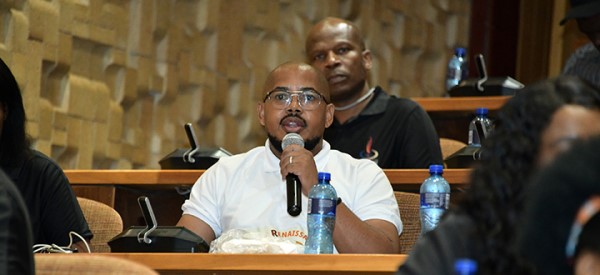
The Open Day was well attended
Seekoe further acknowledged the school’s efforts in fostering critical thinking and contributing to South Africa’s National Development Plan 2030 and the African Union’s Agenda 2063, particularly in the context of its role in issues affecting the Democratic Republic of Congo.
Furthermore, Seekoe stated that the open day provided an opportunity to connect with potential TM-School students and to promote lifelong learning opportunities. She concluded her message by acknowledging that the TM-School has demonstrated talent and passion in making a positive impact in society, specifically by developing short learning programmes (SLPs) that will grow to develop master’s and doctoral studies.
Prof Edith Phaswana, Acting Dean of the TM-School, provided background on the establishment of the TM-School while introducing the school’s staff members. In addition, Phaswana elaborated on the advantages of enrolling with the TM-School, pointing out that the school uses transdisciplinary methodologies in training students and allows students to examine issues in a systematic and creative way. She further highlighted the accreditation of its master’s and PhD qualifications. She added that upon completion of their master’s degrees, TM-School graduates demonstrate the ability to apply specialist knowledge and to critique, analyse and identify gaps in existing research, practices and political analysis.
As far as doctoral studies are concerned, she noted that a PhD represents an original contribution, distinguishing it from a master’s degree. She noted that students at the TM-School can choose between two pathways of completing a PhD, namely, full research or publication. In providing context to the TM-School’s qualifications, she explained that the school functions according to the comprehensive open, distance and e-learning (CODeL) model followed by Unisa. Therefore, support and methodology classes take place visual.
Furthermore, Phaswana emphasised that the TM-School follows the strategic plan of the university, which is one of transformation. As a result, it is a social science school that encourages students to go out into communities to solve problems practically. Phaswana concluded her presentation by mentioning the nine focus areas of research at the school, namely, Citizenship Studies, International and Diplomacy Studies, Peace and Conflict Studies, Public Leadership Studies, Security and Intelligence Studies, Simulation and Futuristic Studies, Study of Government Affairs, Sustainable Livelihoods and Resources Management, and Urban and Rural Affairs.
Prof David Mello, Acting Director of Academic Programmes at the TM-School, offered a presentation on the academic directorate, noting that it is responsible for the initiation and quality assurance of qualifications. He indicated that the school offers SLPs at entry level (NQF Level 6), which requires a matric certificate, and an advanced level (NQF Level 8), which requires a degree. He explained the requirements of the school’s full research and coursework modules.
Prof Mello mentioned that the school has established a relationship with the Estonian Business School and government as part of its involvement in the fourth industrial revolution (4IR) towards fulfilling this goal found within the university’s catalytic niche area. To strengthen this collaboration, Prof Anthoni Van Nieuwkerk will soon be travelling to Estonia.
The next speaker, David Letsoalo, Acting Director of Academic Support, Student Affairs, Internationalisation and Community Engagement at the TM-School, delivered a presentation in which he elaborated on the impact that the school should make, noting that it must impact Africa and beyond. He stated that the directorate believes in the idea of coalescence in the academic project, which entails
Letsoalo outlined the school’s current CE projects, namely, Lekgotla la Batho, Electoral Dispute Resolution (EDR), the Miriam Makeba CE Project and Community Asset Mapping.
On the topic of research, Prof Sifiso Ndlovu, Acting Director of Research at the TM-School, emphasised the critical role research plays at universities. He highlighted the importance of producing original and authentic work, adding that research academics should cite local experts instead of relying predominantly on European scholars. This approach, he noted, is essential for developing theories that are relevant, practical and rooted in the African context.
Continuing, Ndlovu suggested that students could explore research topics found in geopolitical tensions such as the current strained relations between South Africa and the United States of America, adding that students should come up with well-argued and convincing solutions to such issues. Furthermore, Ndlovu indicated that the research directorate is committed to equipping students with the knowledge and skills needed to solve complex African and global challenges, promoting high-quality postgraduate teaching and research, advancing democracy, governance, justice, peace and sustainable development and aligning research initiatives with the United Nations Sustainable Development Goals.
A message of support was delivered by Prof Thomas Pooley, Acting Director: Directorate Music, in which he highlighted the important behind-the-scenes functions of the Office of the Registrar. These include student communication, a service centre, admissions, registration, student governance and development, assessment and examinations, students records and graduation.
Pooley noted that the location of Unisa is strategic in respect of engagement with the diplomatic community, stating that the TM-School can benefit from interaction with diplomats, who should be encouraged to enrol in the school’s programmes.
Pooley referred to Pillar Three of Unisa’s strategy, namely, pivoting scholarship and global impact, which is grounded in principles of democracy, socio-economic development and environmental sustainability. "This pillar," he said, "focuses on producing high-impact outcomes across national, continental and international levels of scholarship and development, positioning the TM-School to play a critical role in this mission."
A former student of the TM-School, Calutis Sufri, who was born in the South Region of Cameroon, shared his excitement about being part of history since it was named Thabo Mbeki School of African Leadership. Sufri recounted how, while he was working for MTN and visited South Africa in 2010, he first heard about the school, where he immediately registered for a programme. Today, he represents more than 2 000 TM-School alumni, who are collectively celebrating this major milestone.
He pledged ongoing support for the school in various ways, including the launch of podcasts that will feature interviews with TM-School academics and explore critical questions about Africa’s gains and ongoing conflicts post-independence.
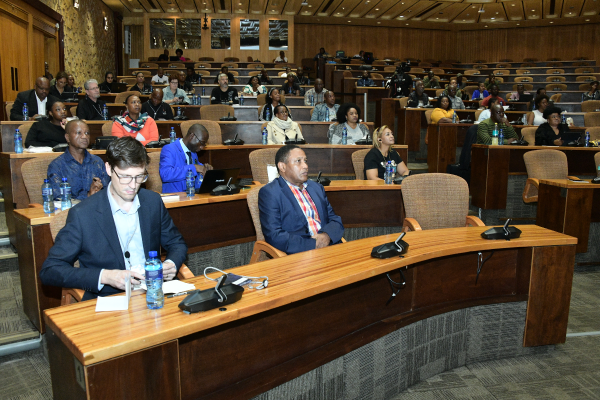
The open day event continued with a series of presentations by TM-School professors who listed the academic programmes that they oversee, and urged students to critically analyse their curricula preferences while considering their career future paths carefully.
* By Boikhutso Mfusi, Researcher, TM-School, and Advocate Sipho Mantula, researcher, TM-School
** Photography by Shooheima Champion, Multimedia Centre
Publish date: 2025-04-17 00:00:00.0
 Unisa empowers award-winning agro-cosmetics entrepreneur
Unisa empowers award-winning agro-cosmetics entrepreneur
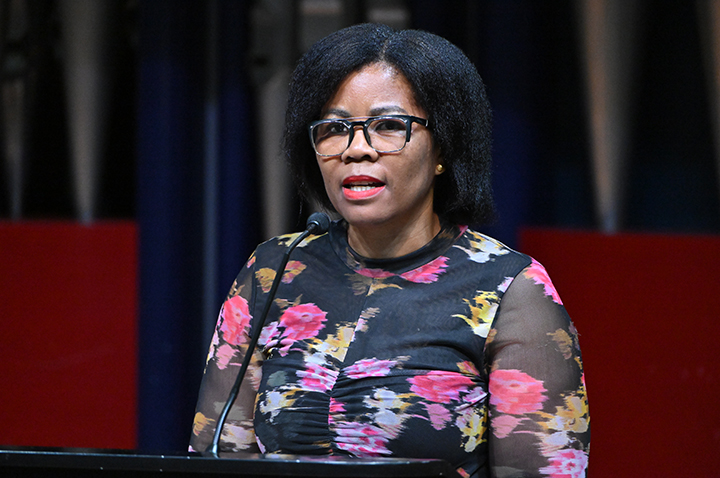 Unisa initiative offers early-career academics "a stepping stone towards greatness"
Unisa initiative offers early-career academics "a stepping stone towards greatness"
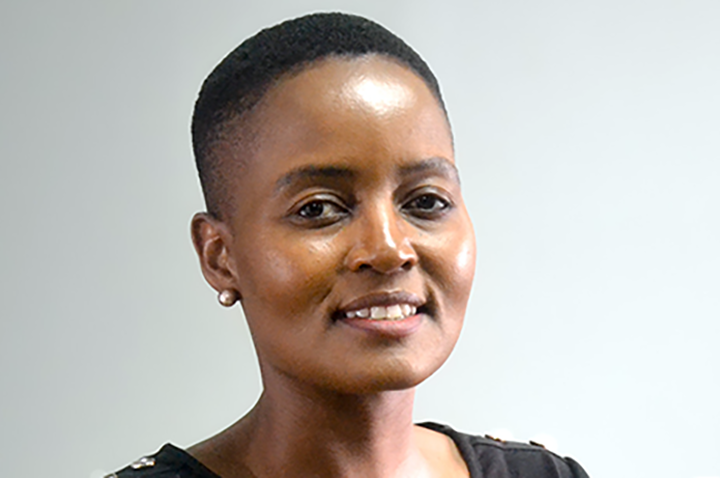 Seasoned meteorologist joins Unisa
Seasoned meteorologist joins Unisa
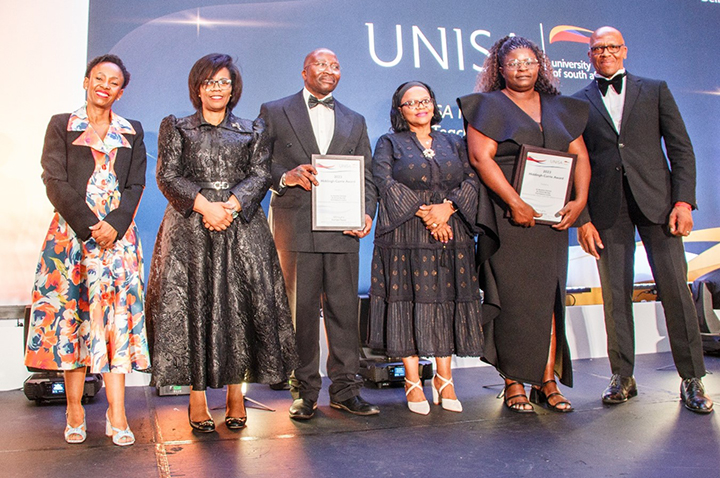 Unisa celebrates the 2023 and 2024 Hiddingh-Currie Award winners
Unisa celebrates the 2023 and 2024 Hiddingh-Currie Award winners
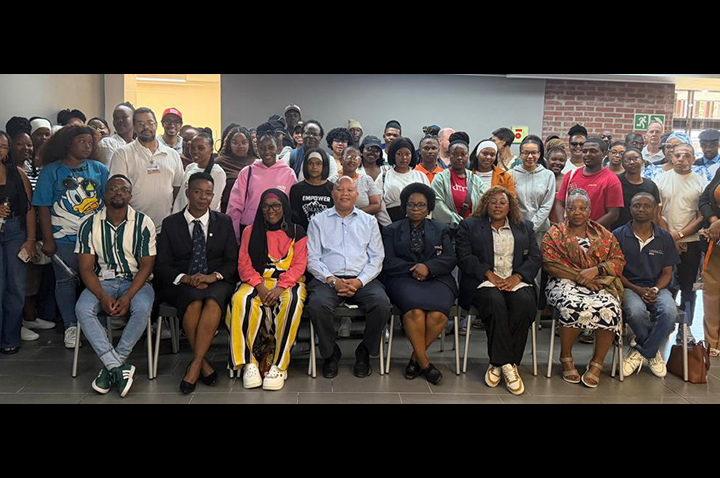 Unisa celebrates a project of hope, dignity and student success
Unisa celebrates a project of hope, dignity and student success